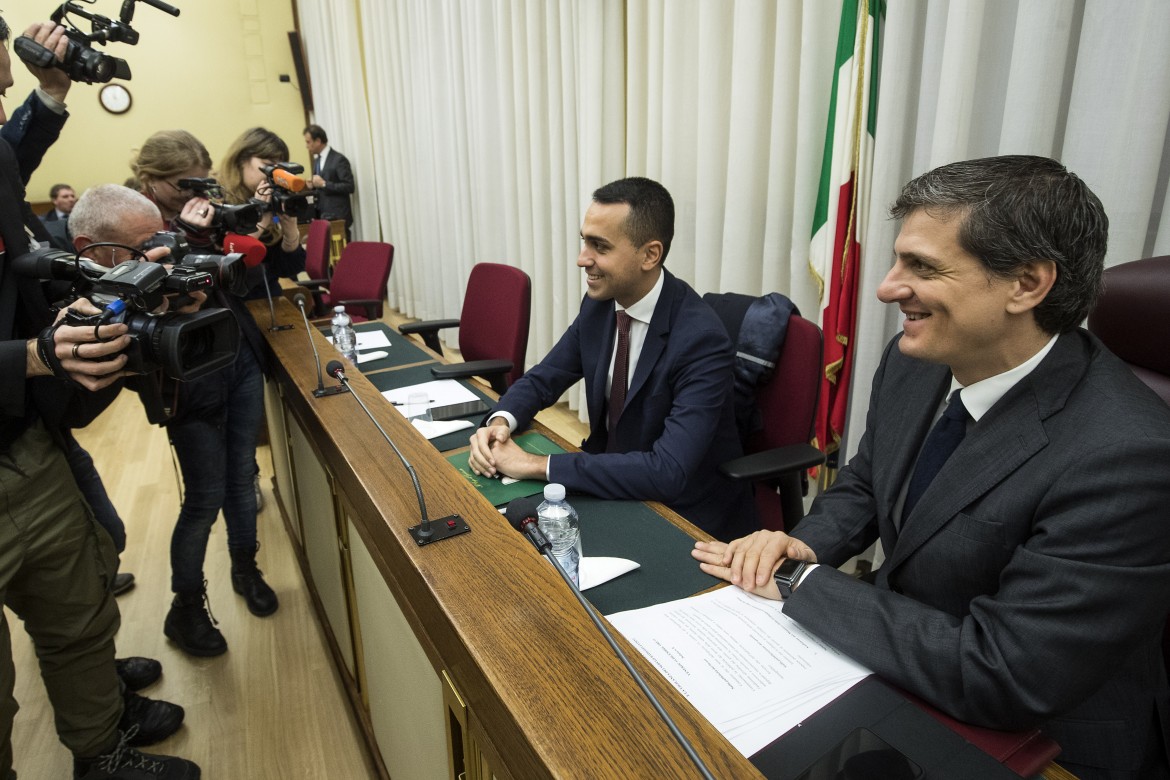Analysis
5 Stars ready to tear up contributions to newspapers and radio
The 5 Star Movement leader, Luigi Di Maio, announced this week the new Italian budget will progressively reduce state contributions to media to zero, a move that could put many outlets out of business.

Luigi Di Maio, as part of his duties as Minister of Development, announced on Friday to the RAI Board of Supervisors the introduction of an amendment to the budget law that will progressively cut direct financial contributions from the government to some media outlets over three years, ultimately eliminating funding completely.
“Our goal is to detoxify the media outlets from their reliance on government grants, giving them time to boost advertising revenues,” Di Maio said.
As the M5S leader put it, “the amendment protects local newspapers that have difficulty earning revenues from advertising by setting a floor” of revenue earned, under which state funding will still be granted, at least for the next three years.
Without naming names, the Di Maio criticized the Avvenire (the largest newspaper that receives direct contributions); he did not, however, shy away from openly attacking Radio Radicale: “they should have checked their costs. There are radio stations on the market that are spending far less.”
On a supposedly unrelated note, the minister also announced the launch of a “Rai Istituzioni” station to document the activity of public institutions, which, given the context, might be meant to replace Radio Radicale as the station with rights to broadcast sessions of Parliament.
This radio station broadcasts nothing but requiems (the only music on the schedule) and full news broadcasts regarding political and institutional processes and events, with an enormous pubic digital archive of inestimable value.
This is Di Maio’s ultimate justification for the cuts proposed: “Freedom of information means not being dependent on the contents of an amendment to the budget law.”
It is a paradoxical argument, given that it is precisely his amendment to the budget law that is putting the freedom of information at risk. Without his amendment, the pluralism fund would still be governed by impartial criteria set out by law, not by the whims of a minister.
The Italian publishing department, an office within the government, now has an exclusively administrative role: a historical outcome that dates back from 2017, after a tough battle with the Renzi government on the very same issue of public funding (“He’s our only Godfather,” read one of our headlines back then, with a first-page photo of Al Pacino holding up a copy of il manifesto, which he gave us as a gift).
At the time, Renzi was hungrily eyeing cuts to the funding for newspapers, but ended up passing a well-thought-out and cost-conscious law instead.
It was, furthermore, a regular parliamentary law—not a unilateral act inserted by a government in a year-end budget law, armed with a triple vote of confidence in Parliament and with no debate in committee or on the floor.
If the notorious ex-prime minister from Rignano had legislated in such a manner, the 5 Stars would have chained themselves to the doors of the Chamber of Deputies, live on Facebook.
Rather, this is how things are done nowadays: a DEF economic report that was a complete waste of paper, a confidence vote in the Chamber of Deputies on an empty page, and the Budget Committee of the Senate forced to adjourn early on Friday for lack of any text from the government to discuss.
Just two weeks away from when he is expected to leave his post, the Minister of Economy is now holed up in Brussels in endless negotiation with the Commission, not only on various concrete measures, but even on the basic financial data of the proposed budget.
It is all an obscene show—yet, unfortunately, one to which the institutions and the country seem resigned.
The Lega is silent as the grave. Some observers are whispering of an agreement made directly with Salvini, who agreed to the closure of newspapers—a measure so dear to the 5 Stars—while getting other concessions in the budget, perhaps having to do with a certain large construction project, so much more important than mere newspapers.
The pressure being put on the majority, however, is very strong, and the clamor coming from the opposition is deafening.
The Parliament representatives of PD, LeU, FdI and Forza Italia have been protesting against the cuts to the pluralism fund for days.
The president of the Senate has already spoken out twice in recent days. Mattarella has spoken no less than seven times. (However, nothing has been heard from Fico).
But the outrage is also mounting outside Parliament.
Just on Friday, the Parliamentary Press Association, the National Order of Journalists, the FOSI union, the Federation of Catholic Press (FISC) and all the associations of small and medium-sized publishers have called on the government to halt the cuts.
On the eve of an inevitable showdown over a confidence vote, after many local authorities put statements condemning the cuts on their agenda, the State-Regions Conference was more or less forced to intervene as well. Its president, Mr. Bonaccini, called on the government not only to protect local radio and television in the new unified rankings system proposed for the allocation of public funds, but also to not eliminate the pluralism fund, both for national and historically established media outlets and for others.
All is falling on Di Maio’s deaf ears. If the drafts of his amendment that are circulating are real, he may be planning the further paradox of cutting the direct contributions to cooperative and nonprofit newspapers from 2019, and the cut of indirect contributions (which go to every outlet) from 2020.
Yes, perhaps he’s right: this is truly what a “toxic policy” looks like.
Originally published at https://ilmanifesto.it/governo-pronto-al-blitz-sui-contributi-editoria/ on 2018-12-15
